Due to their high reproduction rate and the abundance of habitats ideal for their existence, mosquitoes have become a threat. Natural and organic methods are utilized to deter them. If you are wondering whether citrus trees could be an option for repelling mosquitoes, you've come to the right place. We've thoroughly researched this matter and found the best answers for you.
Citrus trees consist of d-limonene and nootkatone substances, which drive away mosquitoes. Their smell is strong enough to confuse mosquitoes. This method of mosquito management is popular, effective, and poses no risk to plants, animals, or the environment.
Various pesticides can be employed to kill mosquito larvae and adults, but they can be overly harsh and have negative aftereffects. These sprays are also bad for the environment. In this post, we will discuss if citrus trees can repel mosquitoes, the additional insects citrus trees can repel, and other plants that can repel mosquitoes. Continue reading to discover the answers to these questions.
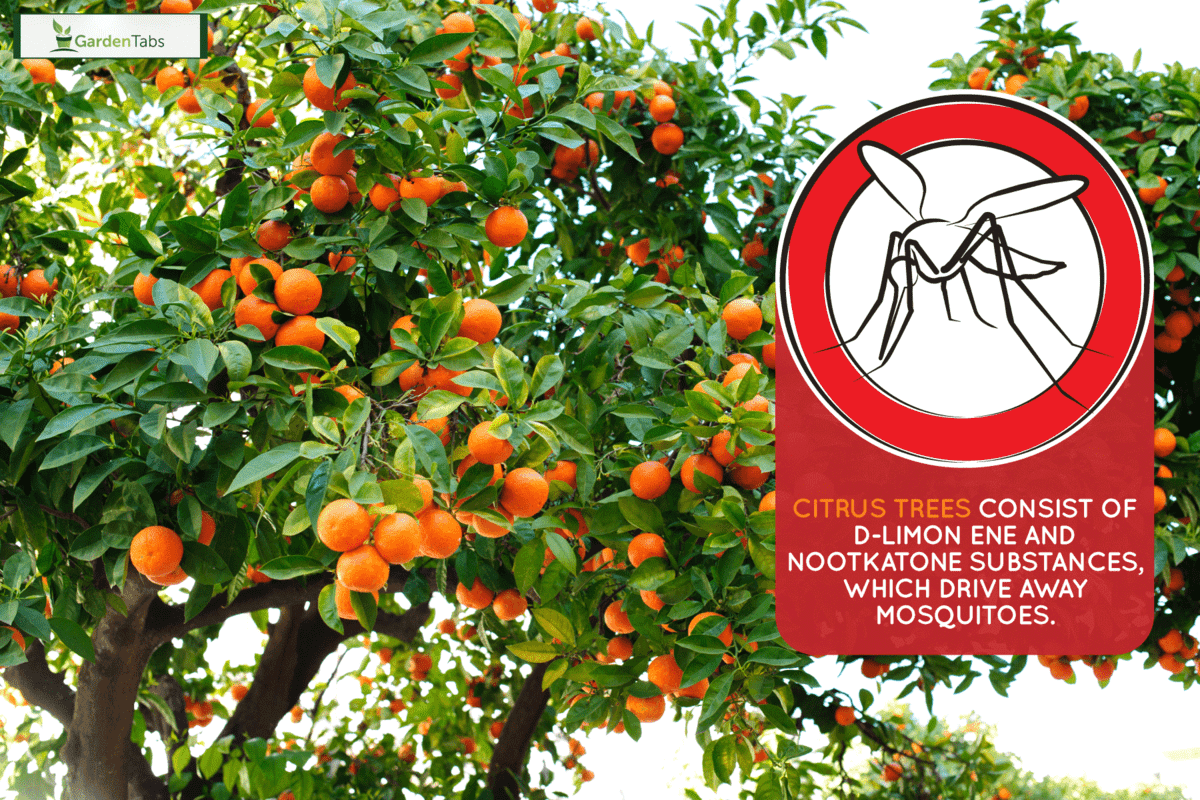
Mosquitoes On Citrus Trees
Like all living things, mosquitoes are drawn to surroundings with the resources they require to survive. Mosquitoes locate humans and other animals to bite partly by detecting their body heat and motion, but they do so mainly by smelling the carbon dioxide released from our pores.
A genus of flowering trees and shrubs is called citrus. Orange, lemon, lime, grapefruit, tangelo, pomelo, and other fruits fall under this genus. The fruits' leathery rind and the white pith surrounding the juicy segments make them distinctive.
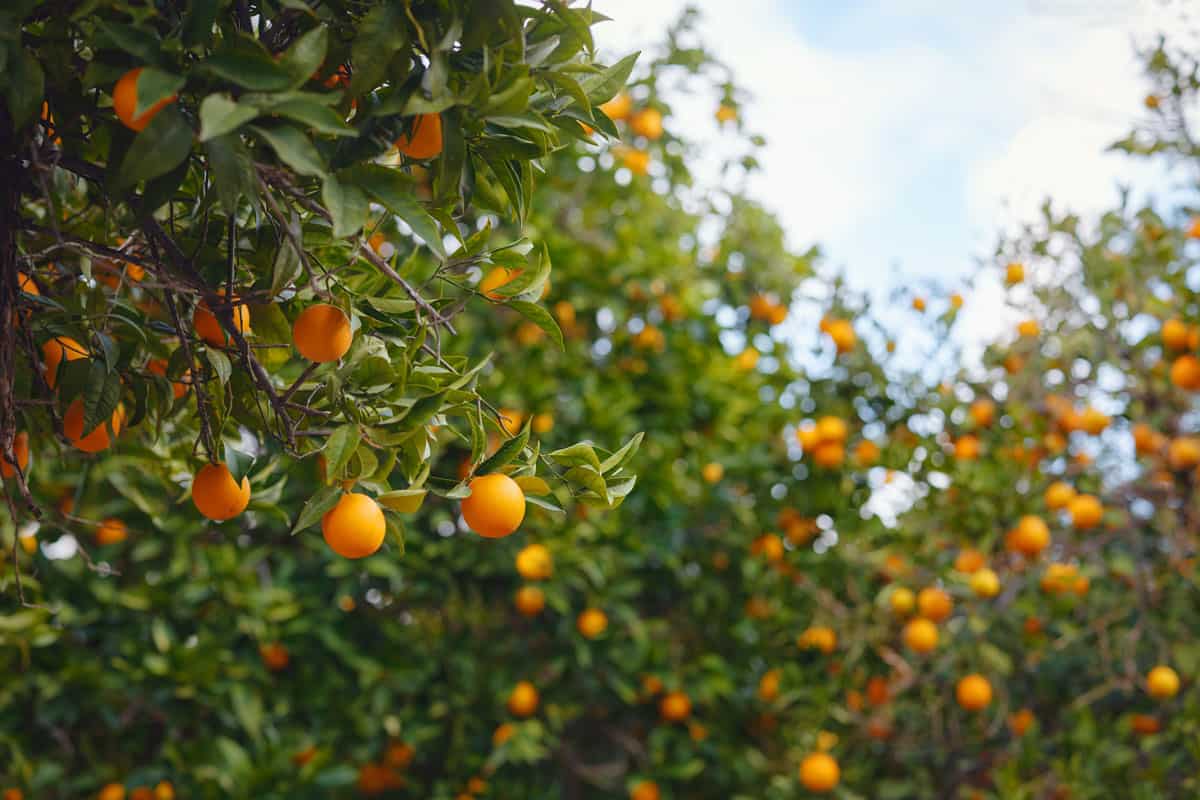
Some plants smell strong enough to be able to hide your fragrance and confuse the mosquitoes. These organic techniques work well and are safer for the environment than manufactured chemicals. These plants make a difference for many people looking for more natural mosquito cures.
The peel and zest of oranges and lemons contain a substance called d-limonene. You can drive mosquitoes and various other insects away with the use of this substance.
The peels of grapefruit contain nootkatone, an organic substance that occurs naturally. This substance is highly effective against mosquitoes. Given that it is potent against mosquitoes and ticks, this substance is frequently employed as a natural pesticide.
However, these plants don't only spread that odor around the yard. The oil found inside the leaves is what has mosquito-repelling qualities. You can take a few leaves, mash them up, and apply the oils to your skin to get the mosquito-repelling effect.
You may also soak fruit peels in water and heat them. It will release volatile molecules via steam, condenses them, and separates them. Organic compounds found in citrus peels have the power to kill mosquito larvae.
You can find many commercial eco-friendly insect repellents that contain d-limonene, which is also present in many citrus essential oils. Numerous studies have demonstrated the effectiveness of citrus essential oils as insect repellents.
Citrus essential oils are effective against both adult mosquitoes and mosquito larvae. This method of mosquito management is well-liked, effective, and does not cause harm to the environment.
Click here to see this orange essential oil on Amazon.
What Insects Do Citrus Trees Repel?
Citrus trees are a natural pest deterrent and are composed of nootkatone and d-limonene substances, which can repel not just mosquitoes but also bedbugs, ticks, and fleas.
Citrus fruits also repel spiders. You can make repellent by squeezing a lemon and combining it with water. Spray this liquid all about the house after pouring it into a spray bottle.
The powerful lemon aroma effectively wards off insects. A lemon balm deters gnats and mosquitoes.
Plants To Keep Mosquitoes Away
Placing these plants adjacent to the area where you want to repel mosquitoes will maximize their effectiveness. Some of these plants thrive in pots, and you can quickly move the plants around with ease.
These additions to your garden can deter insects and give off a lovely perfume. Here are the plants that are not only attractive but may also naturally ward off pesky insects like mosquitoes:
1. Marigold

Marigolds are simple to grow and give off a scent that keeps insects away. They contain a chemical called pyrethrum, which is very unpleasant to many insects, making it a dependable alternative for those accustomed to growing border plants in their vegetable gardens.
The plant releases this molecule during normal biological activities, along with another natural substance known as thiophenes.
The several marigold kinds all signal mosquitoes to leave the area. Marigolds are also a well-liked addition to vegetable gardens and border plantings. When put in sunny containers, they thrive.
Before watering, allow the soil to dry out somewhat. To keep mosquitoes out, grow them in pots and set them close to your front door.
Click here to see these White Swan marigold seeds on Amazon.
2. Rosemary
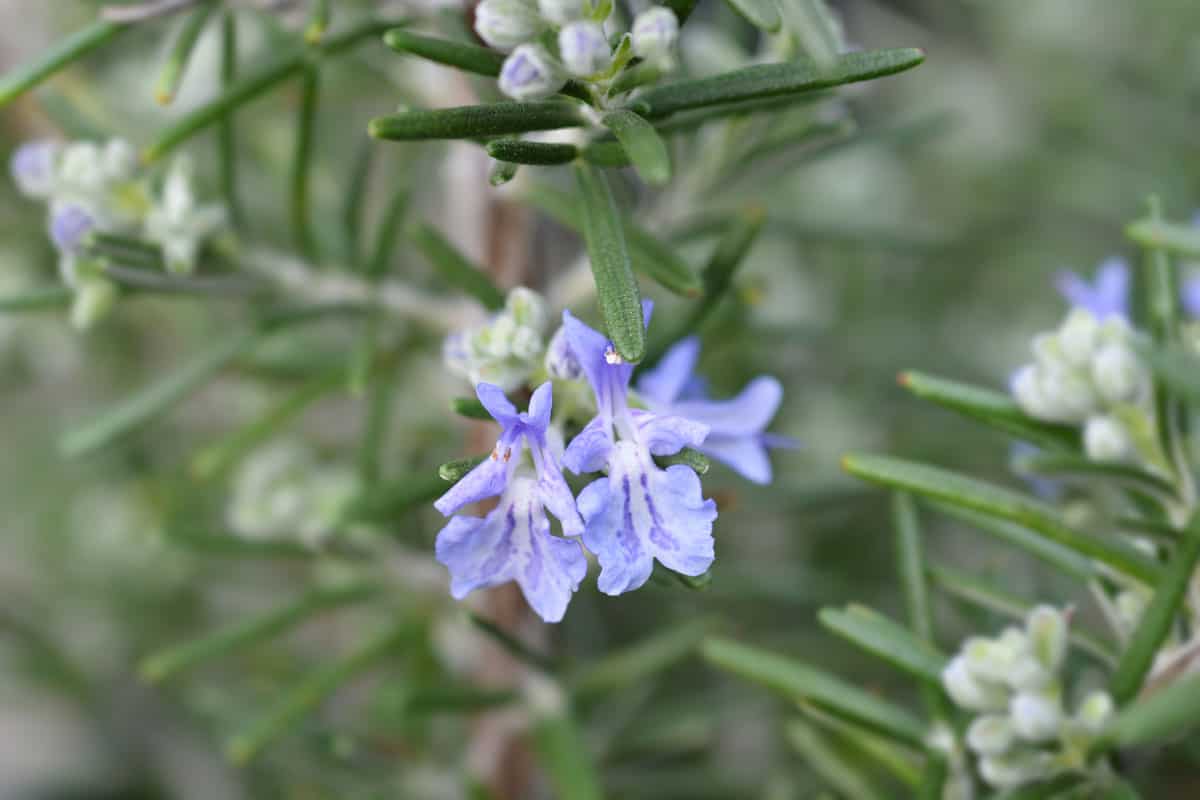
Rosemary is another effective insect deterrent. Throw a few rosemary sprigs on the grill if the mosquitoes are awful, and the fragrant smoke will help keep the mosquitoes away.
You can savor the herb's aroma and use it to season food while the pests keep away. To get rid of mosquitoes, plant rosemary in the garden. Additionally, you can use it in lotions to serve as an insect repellent.
They flourish in containers and perform best in hot and dry climates. These mosquito-repelling plants thrive in full sun as long as they are planted in sandy soil that drains rapidly. You may trim them into various sizes and forms, making excellent borders or decorations.
Click here to see these rosemary seeds on Amazon.
3. Basil

Basil deters mosquitoes as the aroma is released spontaneously by the plant. Basil emits a potent smell even when the leaves aren't crushed. You can place it next to standing water to prevent mosquitoes from laying eggs since it is harmful to mosquito larvae.
A study discovered that basil leaves alone have a 79% effectiveness in preventing several mosquito species. The same research analysis found that basil oil applied topically eliminated mosquitoes in a testing environment.
You can grow basil in pots, in the garden, or alongside other flowers. This herb needs to stay damp, requires adequate drainage, and benefits from a lot of sunlight.
Click here to see these basil seeds on Amazon.
4. Lavender
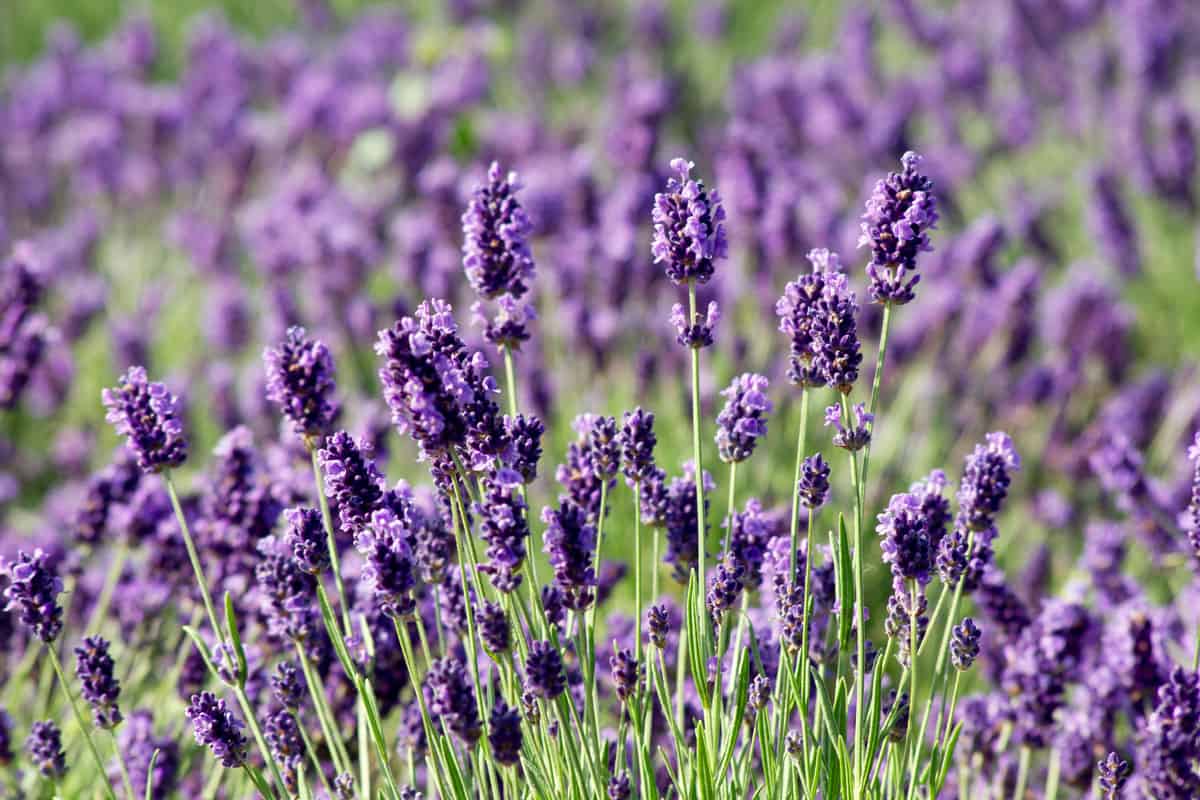
Lavender has a beautiful scent, which is brought on by the essential oils that are present on the plant's leaves. The potent aroma of lavender can repel moths, flies, fleas, and mosquitoes. Additionally, it can be turned into oil and administered topically.
It's a charming addition to your yard or home for many reasons, including its lovely aroma, pretty purple blossoms, and relaxing qualities. This plant needs full sun and good drainage and is exceptionally hardy and drought-resistant.
Click here to see these Hidcote blue lavender seeds on Amazon.
5. Citronella Grass (Lemon Grass)
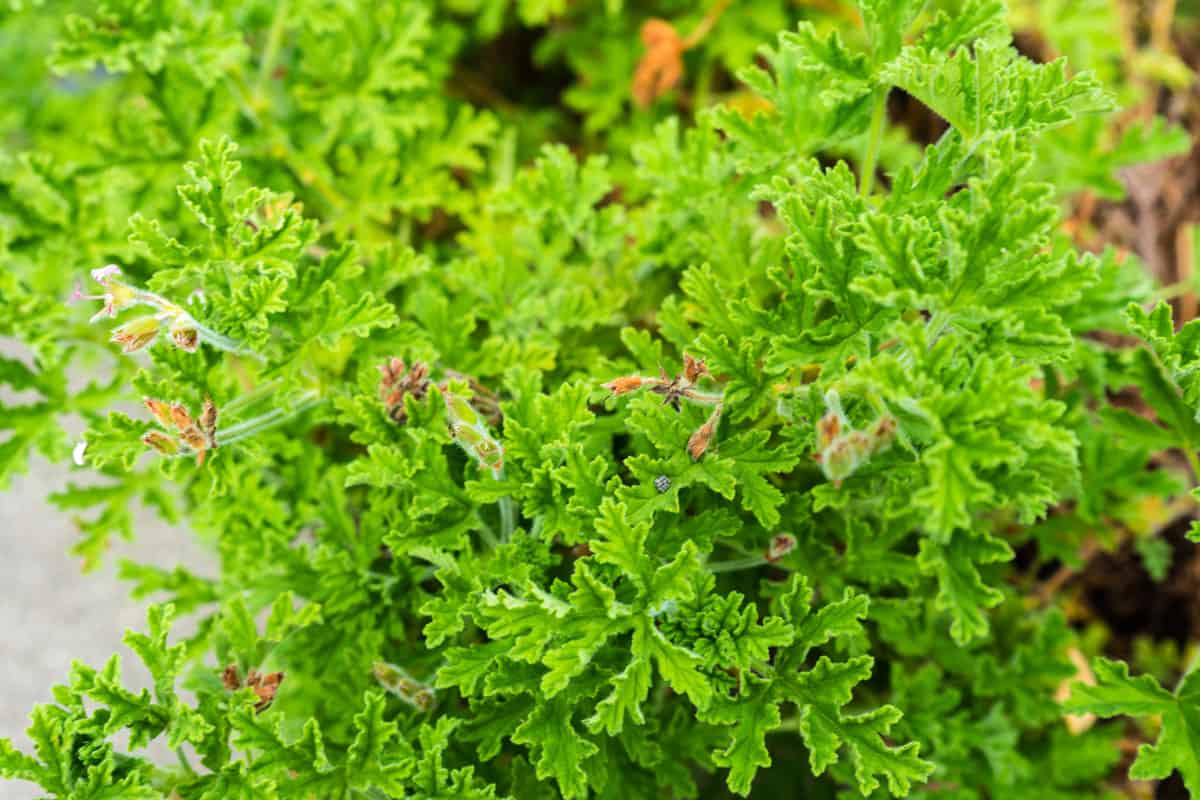
The most famous natural component in mosquito repellents is citronella grass. Using citronella grass and other plants with lemon scents is advisable for detering mosquitoes. Its leaves are used to create their potent scent, which is highly repulsive to mosquitoes.
The leaves can be crushed and applied to naked skin to keep against biting insects. This annual should be grown in a warm, full-sun location with regular fertilization using fish emulsion or an essential fertilizer and wet soil.
This low-maintenance plant thrives in big containers. When planting, be careful to account for the fact that citronella grass can grow up to 6 feet tall.
6. Sage
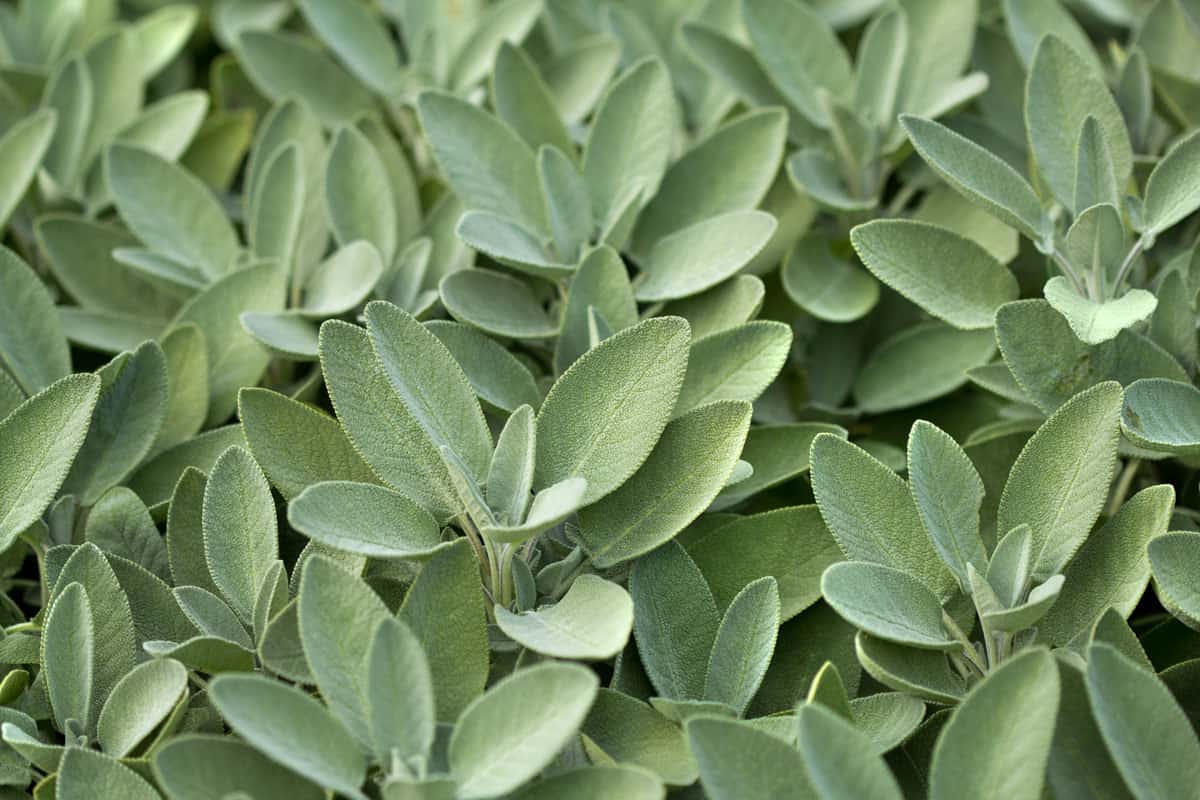
Sage is part of the mint family and has long been a favorite in herb gardens at home. The plant's earthy scent will deter mosquitoes. Sage leaves make a natural mosquito repellant, so burn some in your fireplace or a fire pit in the backyard to fill your house with energizing scents.
Click here to see these sage seeds on Amazon.
How Long Will A Citrus Tree Grow?
You can start your citrus tree from seed if you have adequate patience. Depending on your technique, citrus seeds might take three to six weeks to germinate.
Citrus trees may take three or more years to produce fruit, depending on the variety. Standard citrus trees can grow up to 25 feet tall when planted in the ground, provided you have enough space in the area.
In Closing
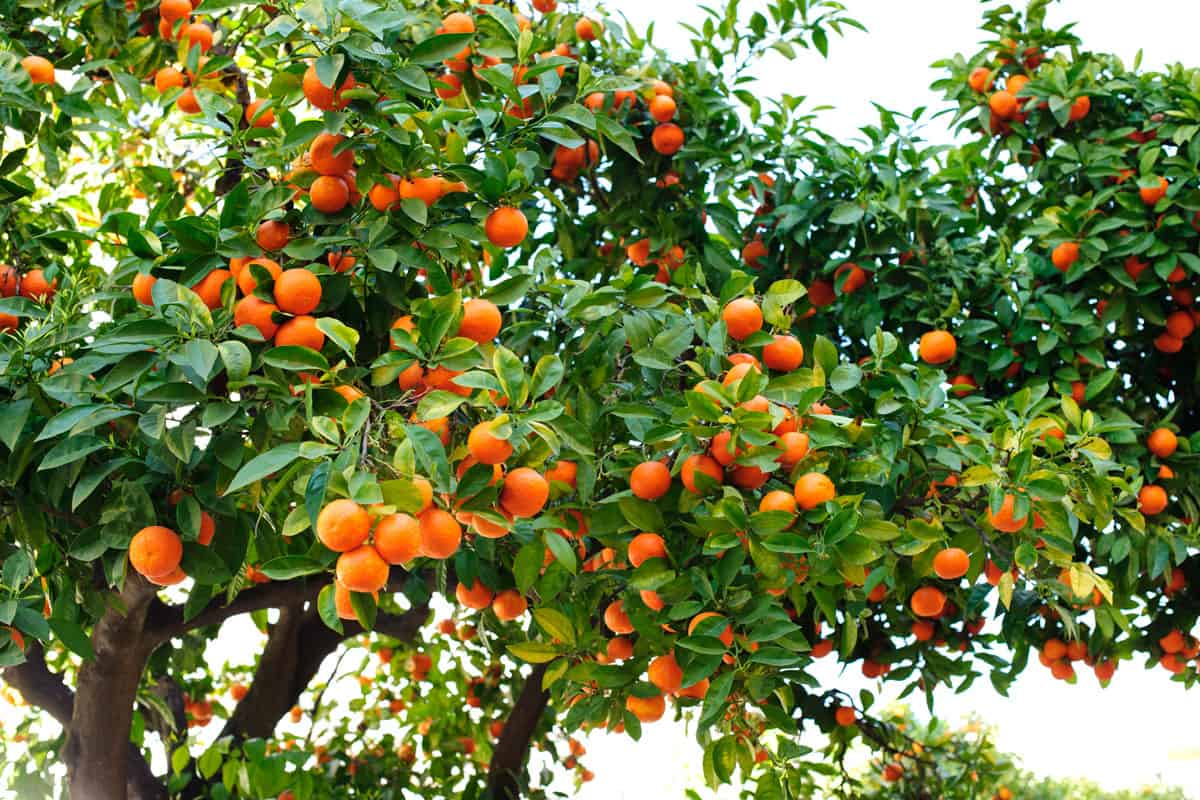
You now know that you can use citrus trees to defend against mosquitoes. Allow them to protect you from the harmful diseases that mosquitoes are bringing to the planet.
Grow some of these plants to help naturally repel mosquitoes if you don't want to cover yourself or your garden with chemical bug sprays.
We hope this post has inspired you. Before you leave, check out these other posts:






